Exploring AI in Education Through the Lens of the Learning Sciences
The Center for CS+LS organized a day-long symposium on AI in education
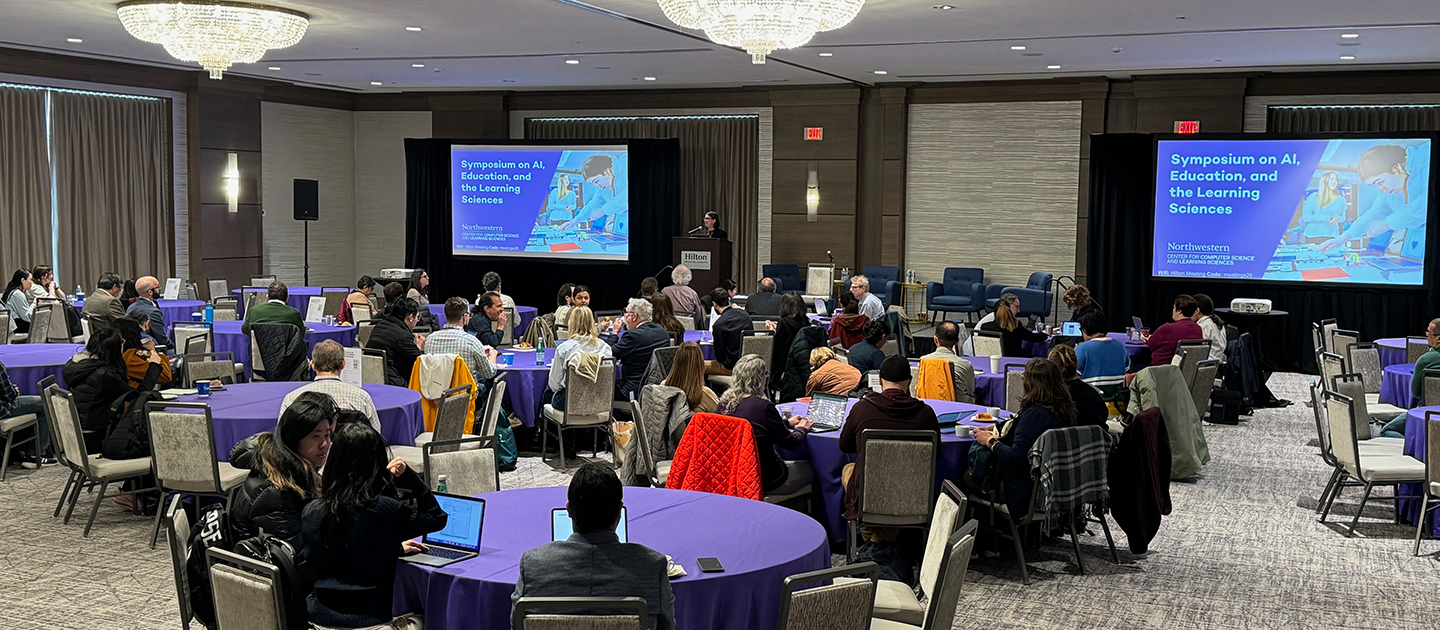
Technological advancements reshape the tools and methods used by teachers and learners, changing how individuals acquire new knowledge, skills, and behaviors.
The potential of AI and foundation models to revolutionize learning environments and accelerate education metrics like quantification, personalization, and optimization is tempered by increasing concerns about the negative impacts on learners and learning communities.
On May 8, the Northwestern Center for Computer Science and Learning Sciences convened 160 educators, researchers, and industry professionals to explore the current and future role of AI in education through the interdisciplinary lens of the learning sciences.
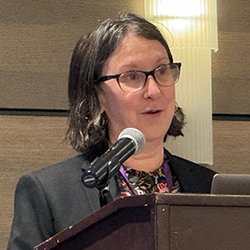
Learning sciences focuses on the ‘how.’ Drawing on disciplines including cognitive science, computer science, linguistics, and psychology, the field investigates the nuances, complexities, and qualitative elements of learning and the design of learning environments within sociocultural, political, and economic contexts.
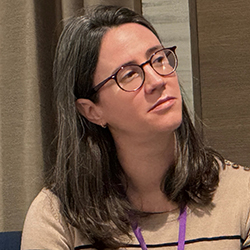
O’Rourke served as chair of the conference organizing committee. Additional members included Michael Horn, professor of computer science and learning sciences; Chris Riesbeck, associate professor of computer science; Bruce Sherin, professor of learning sciences, and Uri Wilensky, Lorraine H. Morton Professor of Learning Sciences and Computer Science.
The event was co-sponsored by Northwestern’s Office of the Provost, the McCormick School of Engineering, the School of Education and Social Policy, the Office for Research, and the Cognitive Science Program at the Weinberg College of Arts and Sciences.
Below are key takeaways from some of the conference’s sessions.
What Is a Learning Sciences Perspective on AI?
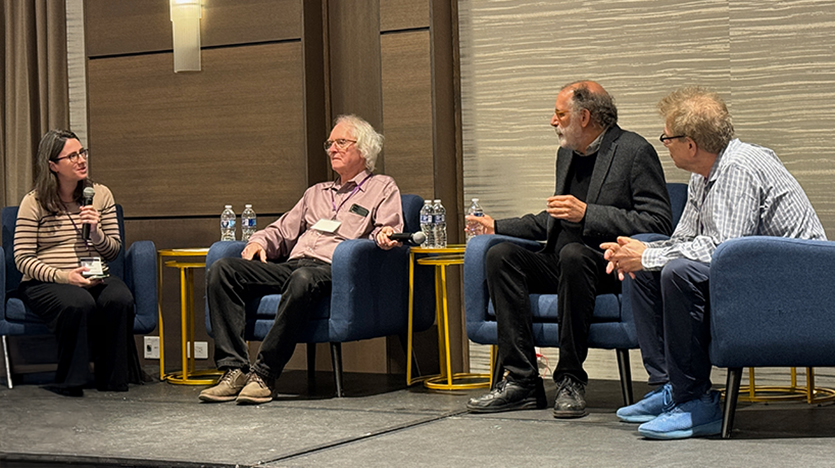
Participants
- Chris Riesbeck, Associate Professor of Computer Science, Northwestern Engineering
- Uri Wilensky, Lorraine H. Morton professor of Learning Sciences and Computer Science, Northwestern Engineering and Northwestern’s School of Education and Social Policy
- Mitchel Resnick, LEGO Papert Professor of Learning Research, MIT Media Lab
Drawing on the legacy of AI and learning sciences pioneers Seymour Papert and Roger Schank, Riesbeck and Wilensky emphasized learner-centered, project-based, and mentored approaches versus traditional tutoring or grading. Inspired by Carla Rinaldi and the Reggio Emilia Approach©, Resnick discussed the importance of supporting children's many "languages” — or ways of thinking, expressing, exploring, and experimenting — to nurture creative, curious, caring, and collaborative learners. Resnick championed learning through projects fueled by passion, in a playful spirit, in collaboration with peers, and suggested AI should support—not dominate—this creative learning framework.
Key Takeaways
Current uses of AI systems in schools diminish learner agency, over-emphasize closed-ended problems, undervalue human connection, and promote artificial empathy. Education should prioritize open-ended, creative problem-solving rather than repetitive, closed-answer tasks — which many AI systems currently reinforce. In addition, AI’s simulation of empathy (e.g., chatbots expressing care or praise) risks misleading learners and devaluing real emotional relationships in education.
Effective learning environments empower learners to be self-directed and pursue problems that matter to them, rather than being led step-by-step by rigid systems. AI tutors tend to control learning goals and processes, potentially stifling creativity, curiosity, and exploration. AI tools should function like reference materials or peer collaborators used by students on their own terms, not as instructors dictating the learning path.
The Scratch platform launched by Resnick’s Lifelong Kindergarten research group, integrates AI to center agency and amplify creativity. Students learn about AI by building with it rather than being guided by it. Tools like Scratch help children engage more deeply and learn more effectively because they make learning joyful and personal.
Notable Quotes
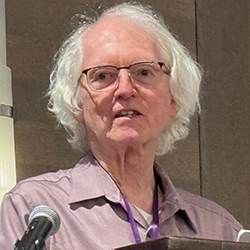
On how authentic learning-through-doing, not passive instruction, is the foundation for meaningful learning.
“We learn from generalizing. We learn from failure. We learn from explanation. Learning occurs when you want to learn and you need to learn, not when somebody wants to teach you.“
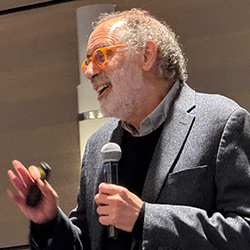
On AI as a catalyst to rethink and reshape education in more human-centered, creative, and democratic directions.
"Right now, we're at a potential defining moment of positive change. The disruption of AI is pushing people to rethink education, which is an opportunity to try and push in the direction of the type of change we want to see.”
Writing and Literacy Education
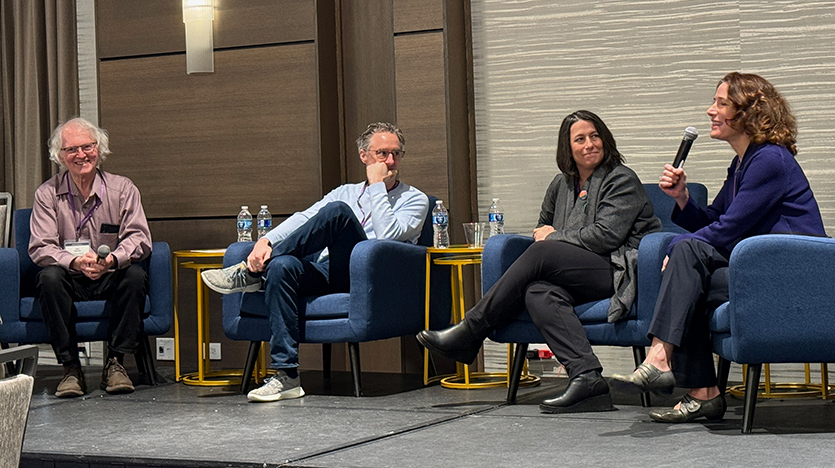
Participants
- John Warner, Author and columnist, Inside Higher Ed
- Kylie Peppler, Professor of Informatics and Education, University of California, Irvine
- Sarah W. Beck, Chair of the Department of Teaching and Learning and Professor of English Education, New York University Steinhardt School of Culture, Education, and Human Development
Warner defended writing as a uniquely human and irreplaceable practice, urging educators to resist technological determinism, AI hype, and self-alienation in favor of more intentional, human-centered teaching. Peppler examined how AI can be integrated into writing instruction to enhance creativity, joy, and collaboration. Highlighting a text-based conversation agent developed in her lab called StoryAI, Peppler discussed how thoughtfully designed chatbots can scaffold the writing process by acting as a creative peer rather than a directive instructor. Beck explored how students use AI to support — not replace — their writing process. She noted the pedagogical potential of AI in helping students develop writing skills, vocabulary, and voice.
Key Takeaways
Writing is a deeply human, emotional, social, and cognitive act that allows for communication, connection, discovery, and the evolution of ideas. Writing is not just output. It’s a process involving intention, reflection, and sensory memory — human abilities that large language models lack. AI merely generates text based on statistical patterns. Positive, playful writing experiences in childhood can lay the foundation for a lifelong love of writing.
AI can enhance the writing process when used as a collaborative peer. Generative AI can help students brainstorm, iterate, and adjust writing styles for different audiences. Research has demonstrated that AI can aid students in writing stronger thesis statements and it can also provide feedback students find more actionable than human evaluation. But students should always maintain authorial ownership by making deliberate choices about which AI-generated suggestions to accept or reject to help them express their ideas.
Creativity flourishes in communities, and generative AI can coexist and collaborate in a community model. Beck discussed Steve Graham’s writer(s)-within-community model of writing as a social activity, in which peer assistants, teachers, and computer-based instruction all have been shown empirically to improve aspects of writing such as idea generation, organization, and motivation. Peppler referenced historical social movements like the Harlem Renaissance and the Lost Generation to illustrate creative writing as a social process.
Notable Quotes
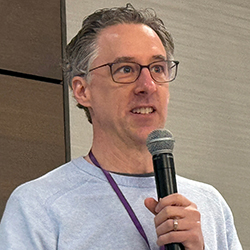
On resisting the urge to anthropomorphize AI.
“Large language models generate syntax. Humans write. The process by which a large language model collects its syntax and generates its output is nothing like what happens. to us and for us as we write.”
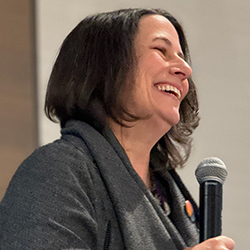
On students’ perceptions of AI not as a teacher or tool, but a collaborative companion.
We're all struggling with metaphors to think about what a chatbot could be, so I just listen to the kids, and they talk about it as peer. They're not really overly impressed by these guys, but they're sitting next to them. A guide on the side.
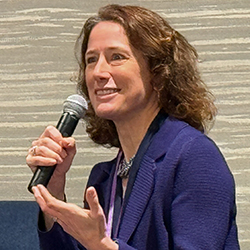
On generative AI and students coexisting and collaborating in the writing process.
“Generative AI can help students discern what is uniquely human — and thus impervious to AI — in their writing.”
Ethics, K-12 Learning Environments, and AI Literacy
Other sessions at the conference conceptualized the role of AI in education through conversations on ethics, fairness, and justice; the learning environments of K-12 schools and classrooms; and AI literacy. Session speakers included:
Ethics, Fairness, and Justice
- Ezekiel Dixon-Román, Professor of Critical Race, Media, and Educational Studies and Director of the Edmund W. Gordon Institute for Urban and Minority Education, Columbia University’s Teachers College
- Shayan Doroudi, Assistant Professor of Education, University of California, Irvine
- Sepehr Vakil, Associate Professor of Learning Sciences, Northwestern University’s School of Education and Social Policy
K-12 Schools and Classrooms
- Dan Meyer, Vice President of User Growth, Amplify
- Sidney D’Mello, Professor of Cognitive Science and Computer Science, University of Colorado Boulder
- Alexander Fishman, Manager of Digital Learning Design and Instructional GenAI, Chicago Public Schools
AI Literacy
- Shuchi Grover, Director of AI and Education Research, Looking Glass Ventures
- Duri Long, Assistant Professor of Communication Studies, Northwestern’s School of Communication
- Jaemarie Solyst, Postdoctoral Fellow in Computer Science and Engineering, University of Washington